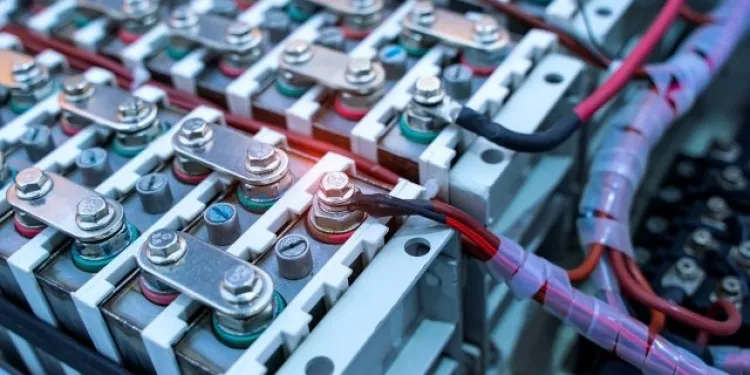
Electric vehicles are taking the world by storm — and now, new research in lithium-ion batteries could expand EVs’ driving range up to ten times.
Two of South Korea’s top research universities — Pohang University of Science and Technology (POSTECH) and Sogang University — have joined forces to create a new material that could radically expand the charge capacity of EV batteries.
The new material developed by the researchers uses both hydrogen bonding and Coulombic forces — best summed up as the attraction between negative and positive charges, according to SciTechDaily. By combatting the shortcomings of high-capacity anode materials, these combined forces allow the researchers to use silicon and other high-capacity materials that were previously too unreliable for widespread use in EV batteries.
Silicon and other high-capacity anode materials have at least 10 times the capacity of the materials that are currently used, like graphite.
The researchers discovered that by removing cobalt and increasing the amount of lithium in EV batteries, their energy density substantially increases and retains most of its capacity after hundreds of charges, according to Business Korea.
Electric vehicles are increasing in popularity — the global EV market passed $1 trillion in sales in 2022, and more than 750,000 EVs were sold in the United States alone, according to SciTechDaily and Inside EVs.
Electric vehicle popularity comes thanks to their greener environmental footprint (they run on electricity instead of dirty energy sources), as well as avoided fuel costs and financial incentives offered by government tax breaks.
One of the factors that causes consumer skepticism about EVs is their range, which makes it seem difficult to take longer trips — though people have taken cross-country road trips in EVs without a hitch. By expanding the range capacity for EV batteries, range anxiety could become a fear of the past.
Soojin Park, professor of chemistry at POSTECH and one of the lead researchers on the project, explained his team’s findings.
“The research holds the potential to significantly increase the energy density of lithium-ion batteries through the incorporation of high-capacity anode materials, thereby extending the driving range of electric vehicles,” he told SciTechDaily. “Silicon-based anode materials could potentially increase driving range at least tenfold.”







